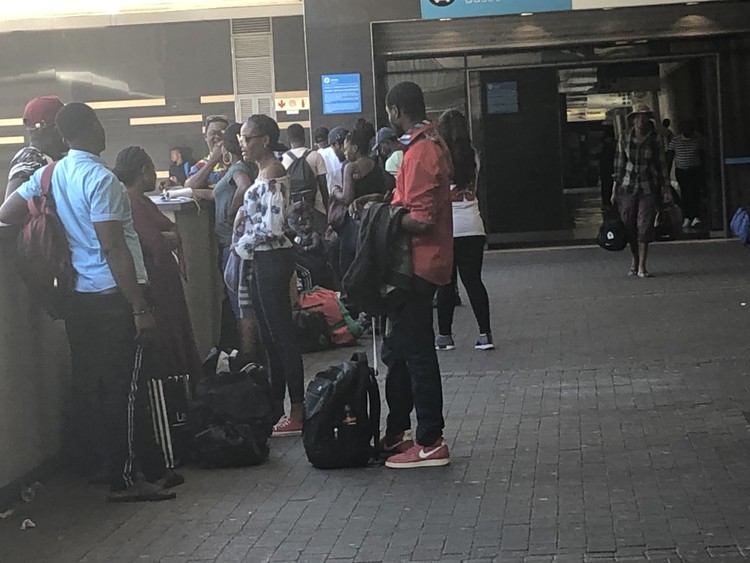Asylum seekers forced to go to Port Elizabeth to apply for documents
Applicants can’t wait until promised opening of Cape Town office in June
Sceptical of promises that the Department of Home Affairs will open a new refugee reception office in Cape Town in June, a refugee rights group has organised a trip to the Port Elizabeth office for people who want to apply for asylum.
On 28 January Voice of Africans for Change (VAC) brought about 65 undocumented immigrants to the Port Elizabeth Refugee Reception Office.
The Cape Town office has been closed to new applications since 2012. The Legal Resources Centre (LRC) and the Scalabrini Centre took Home Affairs to court and, in September 2017, the Supreme Court of Appeal ordered the department to open and maintain the Cape Town office by 31 March 2018. But Home Affairs has not yet complied, though it has been reported that a new Cape Town Refugee Reception Office will be opened in June 2019 on new premises in Maitland.
But VAC Director Germain Kalombo Ntambue is sceptical. “This could be another false promise,” he told GroundUp.
Media Manager at the Department of Home Affairs, David Hlabane dismissed concerns that the department might not comply with the order, saying that Home Affairs had been providing monthly reports to the LRC and Scalabrini centre as directed by the court.
Ntambue said in November and December the association had been in Port Elizabeth to monitor the refugee reception office and had been able to make appointments for some refugees.
He said people could not wait until June for documents because in the meantime Home Affairs was arresting immigrants. He said about 50 people from Zimbabwe, Cameroon and Nigeria had been arrested in Dunoon earlier this month.
“Instead of coming up with solutions to document newcomers they are deporting. It is for this reason our organisation believes that wherever a Home Affairs refugee office is open for new applicants, people should go. Port Elizabeth is the closest one to Cape Town.”
He said without proper documents refugees could not find work, study, access health care or find homes to rent. “Nothing can be done without a document. It’s a key to everything.”
Ntambue said many of those in the group travelling to Port Elizabeth were Congolese fleeing instability after recent elections in the Democratic Republic of the Congo. Those who protested about the outcome of the elections - officially won by Felix Tshisekedi, thought to be in an alliance with outgoing president Joseph Kabila - were being persecuted, he said.
Support independent journalism
Donate using Payfast

Don't miss out on the latest news
We respect your privacy, and promise we won't spam you.
Next: Evicted from their home, farmworker’s family camp in an old clinic
Previous: Voter registration rate down from 2014
© 2019 GroundUp.
This article is licensed under a Creative Commons Attribution-NoDerivatives 4.0 International License.
You may republish this article, so long as you credit the authors and GroundUp, and do not change the text. Please include a link back to the original article.

